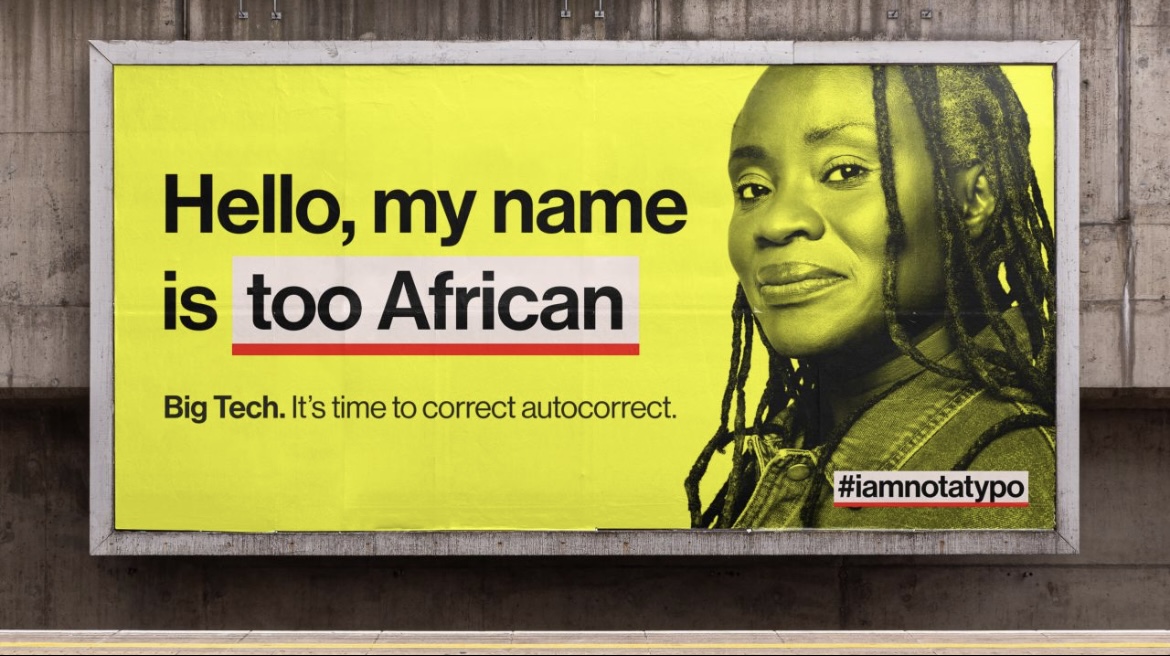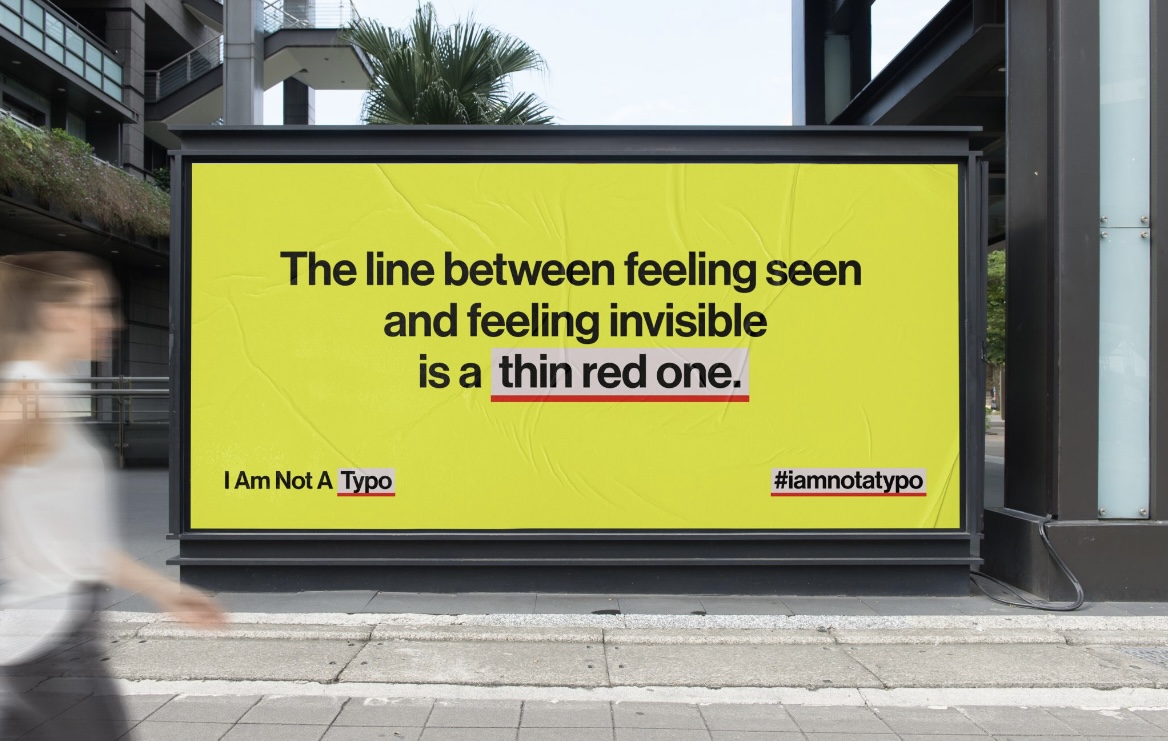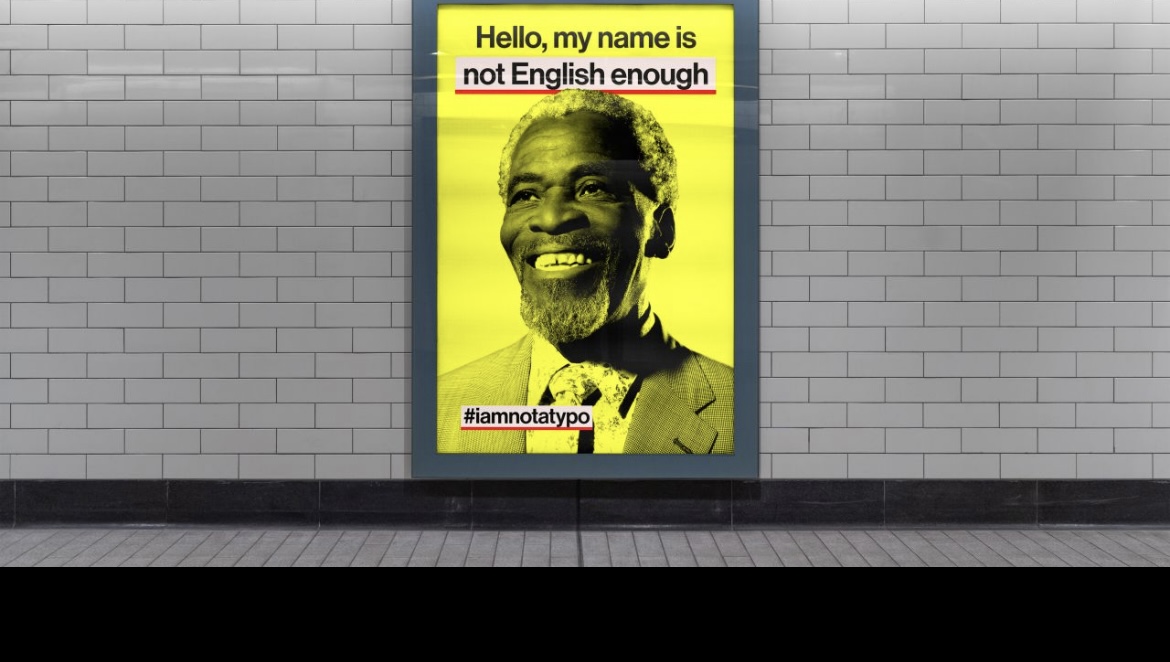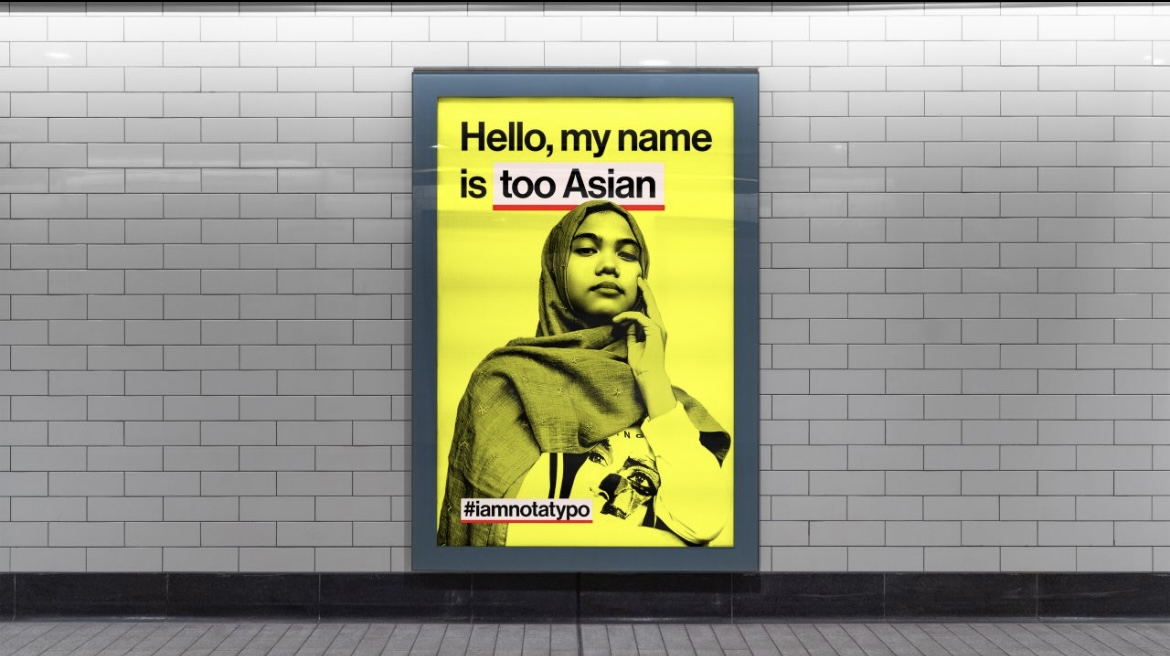
Diversity, equity and inclusion at risk - How layoffs in the tech industry impact citizen science
Anna Verones
Aug. 29, 2024, 10:27 a.m.
This article is a joint effort of the ECSA Diversity, Equity, Inclusion and Belonging (DEIB) task force and was written by Anna Verones, Leo Mensel, Carolina Doran.
The images illustrating the articles are a courtesy of the I am not a typo campaign. I am not a typo is a collective aiming to create social change so no one feels like an oversight. It looks at the link between identity and technology, challenging tech giants to adapt.
The cover picture illustrates a poster from the I am not a typo campaign, showing a Black woman and reading "Hello, my name it too African. Big Tech. It's time to correct autocorrect. #IAmNotATypo."
Was diversity, equity and inclusion (DEI) truly ever a valued priority? Recent layoffs at Microsoft, Google, X and other tech giants often targeted employers and consultants working on DEI, showing decreasing commitment in creating safe and diverse work environments.1 Those layoffs beg the question: How can we trust that future technologies from these companies will support our efforts to drive systemic change if their commitment to DEI appears superficial?

Poster from the I am not a typo campaign reading "The line between feeling seen and feeling invisible is a thin red one"
Why do we need DEI?
Departments that actively work on DEI within an institution can have incredibly powerful impacts for present and future employees. They ensure that employees from underrepresented social groups are involved and that their concerns and lived experiences are equitably considered in decision making processes. These include, but are not limited to, groups affected by structural discrimination due to their race, gender and gender identity, sexual orientation, disability, and religion. DEI benefits everyone by fostering a richer exchange of ideas, enhancing innovation, and creating environments where all individuals—underrepresented or not—can thrive and contribute to their fullest potential.2
This can be achieved by implementing tools and training, that educate team members and allow them to meet each other at eye level, by recognising and removing existing (and often unconscious) biases. The outcomes of this are far reaching and it can also prove economic benefits to companies as a whole by improving workflows and performance. 3
DEI layoffs present a serious problem, especially in the tech industry. If companies are not willing to promote DEI, their products and services will not represent and serve society as a whole. Furthermore, the companies mentioned above are landmarks in their respective fields and thus carry a moral responsibility to pave the way for smaller and growing enterprises who look to them for guidance.

Poster from the I am not a typo campaign, showing Black man and reading "Hello, my name is not English enough"
How does this relate to citizen science?
Many citizen science initiatives and projects collect data using digital platforms and other technologies. However, many of these tools are not accessible nor inclusively designed. If the tools provided by the tech industry are developed by a homogenous group of people, the lack of diversity creates biased outcomes. Ultimately, these biases can affect the quality of the projects that depend on them. This could significantly hinder the success of our citizen science initiatives.
Citizen science can be defined as the democratisation of science and the inclusion of the public in scientific research. This comes with an obligation of serving the public as a whole. Projects strive to work openly and transparently and always have a fair representation of the communities they are aiming to engage. For example, the AGORA project specifically targets social groups most vulnerable to climate change, such as youth, people with disabilities and chronic illnesses, and the elderly. It engages them in understanding the impacts of climate change while co-creating adaptation solutions that better meet their needs. Another example, the ECS project, has a big focus on fostering inclusion in citizen science where several capacity building modules are developed both for the project partners and the citizen science community. It also dedicates significant effort to understanding who is often excluded from citizen science projects and in developing mechanisms by which practitioners can better understand and work on removing participation barriers.
Participation in citizen science typically relies on volunteers, who have the time, resources and motivation to contribute. When citizen science practitioners don’t actively remove barriers when designing projects, we get the, far too common, outcome that only a small and homogeneous group of people participate, which means that, much like we described for the industry, the data and results primarily reflect their interests and priorities. This is both unfair and also detrimental for the quality of the results we are obtaining.
We see it as our obligation to change that!
ECSA, as the European home for citizen science, is highly committed to improving diversity, equity, and inclusion, both for the citizen science community as a whole and within our own team. We further see it as a chance to elevate our performance and amplify our impact: when we all feel seen and are able to bring our true selves to the office, the work we produce will be of much higher quality.
How we exercise DEIB at ECSA
Since 2018 ECSA’s Working Group on Empowerment, Inclusiveness and Equity (EIE) is dedicated to opening up participatory sciences to more people from more diverse backgrounds. To that aim, the working group meets regularly to exchange best practice examples and create EIE tools that facilitate inclusive participation.
Within ECSA, we are currently setting up our very own task force on Diversity, Equity, Inclusion and Belonging (DEIB). This initiative began in 2023, driven by spontaneous and voluntary efforts from the team, reflecting our commitment to advancing DEIB within our organisation. Our goal is to remove potential discriminatory barriers and create a sense of belonging for everyone in our team. We want to show how simple tools can significantly enhance the way we work together.

Poster from the I am not a typo campaign, showing young women in Hijab, reading "Hello, my name is too Asian"
With team members from 14 countries and from various walks of life, ECSA already benefits from a rich diversity that greatly enriches our organisation. However, we recognize that good intentions alone are not always enough to fully advance this diversity, and without careful attention, they can even perpetuate discrimination and inequalities. While diversity is always present, it loses its value when some voices are disregarded.
The DEIB taskforce is currently looking at sociocracy as a governance model to ensure that everyone’s voice is represented in decision-making and that everyone has the agency to actively contribute to the developments of the organisations. In sociocracy, decisions are made by seeking consent from those directly involved in specific areas, rather than requiring universal agreement. This means that while not everyone in the organisation needs to agree on every decision, those working in a particular area must be able to approve or raise objections if they believe a decision could harm the organisation’s goals. Another common practice in sociocracy is the use of “rounds,” where each person speaks in turn during meetings. This method ensures that all voices are heard, which is crucial in diverse teams, as it helps capture a broad range of perspectives rather than just those of the most vocal members. Implementing sociocracy involves establishing clear roles, responsibilities, policies, and processes to facilitate effective decision-making and consent. We are excited to embark on this journey and look forward to sharing our learnings soon with the community, exploring how these tools can further enhance citizen science.
ECSA’S vision is that of a world where people are empowered to make a positive change through science. Science is never neutral and in the interface between open science and social justice lies the true potential to work towards a healthy and just planet for all.
References
1. Ava Martinez, Diversity Takes a Backseat as a Microsoft DEI Team Is Laid Off, The HR Digest, 17 July 2024
2. Karen A. Jehn, Katerina Bezrukova, A field study of group diversity, workgroup context, and performance, First published: 17 August 2004, Journal of Organisational Behaviour
Bernardo M. Ferdman, Jeanine Prime, Ronald E. Riggio (eds), Transforming Diverse Lives, Workplaces, and Societies, Routledge 2021
3. Cedric Herring, Does Diversity Pay?: Race, Gender, and the Business Case for Diversity, American Sociology Review, vol 74 issue 2